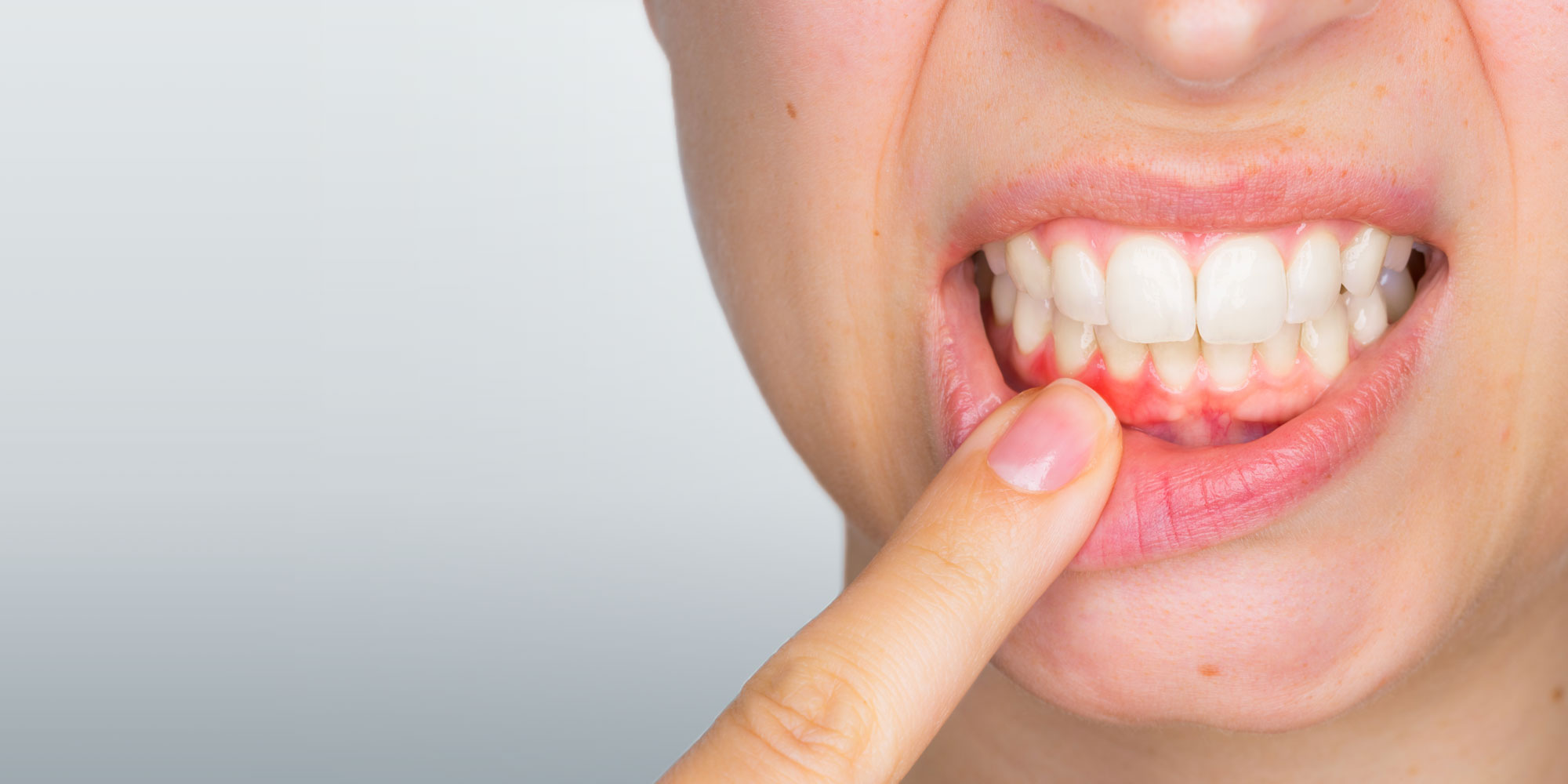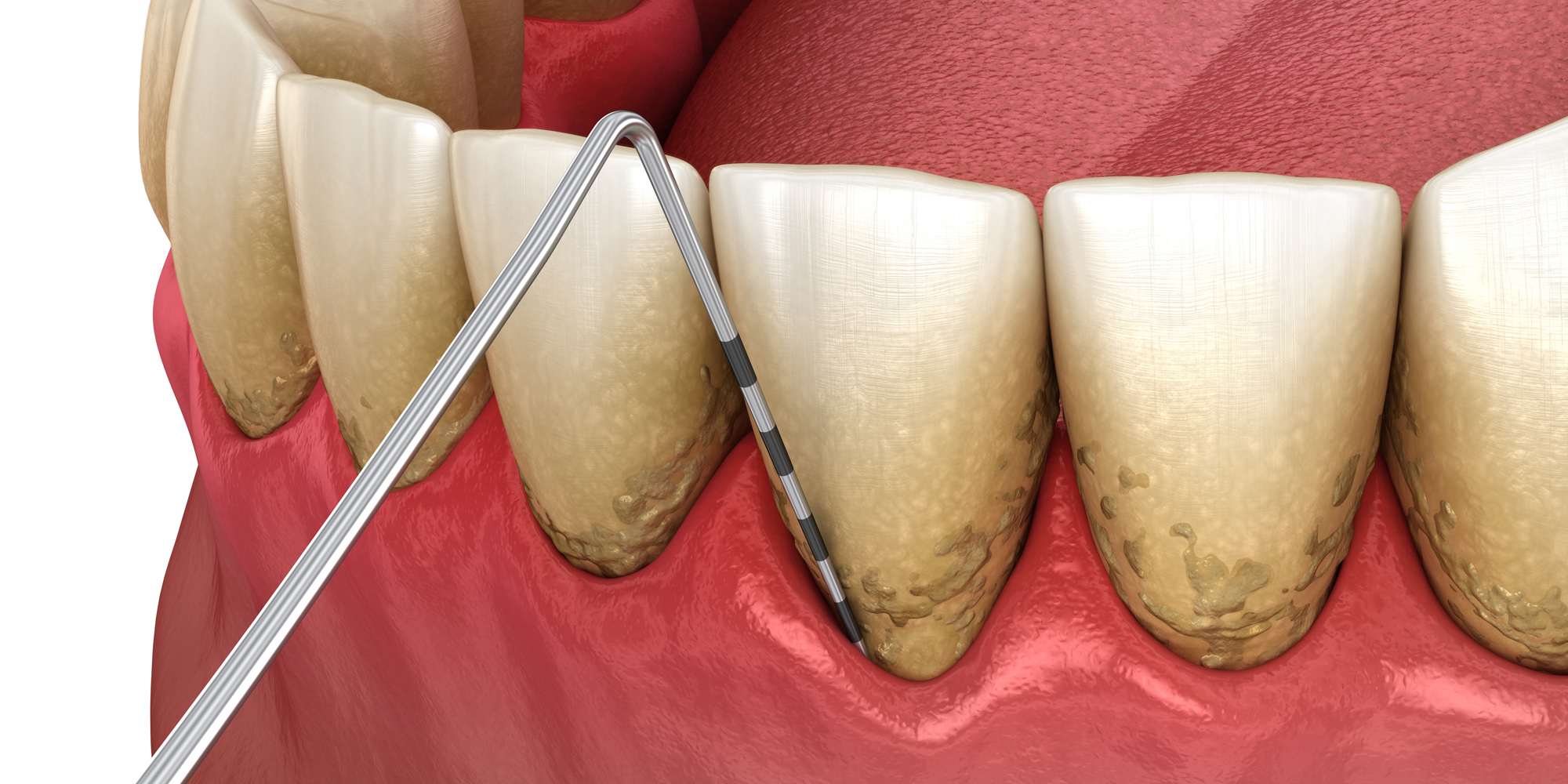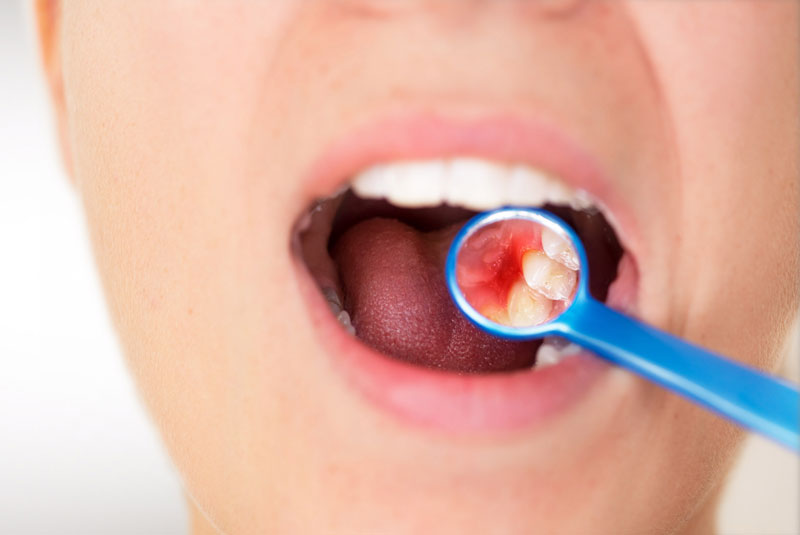Periodontal diseases - Philadelphia, PA
Sore, Swollen Gums?

Periodontal Disease And Treatment
Periodontal (gum) diseases, including gingivitis and periodontitis, are serious infections that, left untreated, can lead to tooth loss. The word periodontal literally means “around the tooth.” Periodontal disease is a chronic bacterial infection that affects the gums and bone supporting the teeth. Diagram comparing healthy and diseased gums Periodontal disease can affect one tooth or many teeth. It begins when the bacteria in plaque (the sticky, colorless film that constantly forms on your teeth) causes the gums to become inflamed.In the mildest form of the disease, gingivitis, the gums redden, swell and bleed easily. There is usually little or no discomfort and you may not even notice it.
Gingivitis is often caused by inadequate oral hygiene. Gingivitis is reversible with dental treatment and good oral home care.
Untreated gingivitis can advance to periodontitis. With time, plaque can spread and grow below the gum line. Toxins produced by the bacteria in plaque irritate the gums. The toxins stimulate a chronic inflammatory response in which the body in essence turns on itself, and the tissues and bone that support the teeth are broken down and destroyed. Gums separate from the teeth, forming pockets (spaces between the teeth and gums) that become infected. As the disease progresses, the pockets deepen and more gum tissue and bone are destroyed. Often, this destructive process has very mild symptoms. Eventually, teeth can become loose and may have to be removed.

What is the correct treatment of Periodontitis?

Periodontal Disease
There are many forms of periodontal disease. The most common ones include the following:
Aggressive Periodontitis:
A form of periodontitis that occurs in patients who are otherwise clinically healthy. Common features include rapid attachment loss and bone destruction and familial aggregation.
Chronic Periodontitis:
A form of periodontal disease resulting in inflammation within the supporting tissues of the teeth, progressive attachment and bone loss and is characterized by pocket formation and/or recession of the gingiva. It is recognized as the most frequently occurring form of periodontitis. It is prevalent in adults, but can occur at any age.
Periodontitis as a Manifestation of Systemic Diseases:
Periodontititis, often with onset at a young age, associated with one of several systemic diseases, such as diabetes.
Necrotizing Periodontal Diseases:
An infection characterized by necrosis of gingival tissues, periodontal ligament and alveolar bone. These lesions are most commonly found in individuals with systemic conditions.
You may want to see a dentist…
- If you are thinking of becoming pregnant. Pregnant women who have periodontal disease may be seven times more likely to have a baby born too early and too small. In addition, about half of pregnant women experience “pregnancy gingivitis.” However, women who have good oral hygiene and have no gingivitis before pregnancy are very unlikely to experience this condition.
- If you have a family member with periodontal disease. Research suggests that the bacteria that cause periodontal disease can pass through saliva. This means the common contact of saliva in families puts children and couples at risk for contracting the periodontal disease of another family member.
- If you have heart disease, diabetes, respiratory disease or osteoporosis. Ongoing research is showing that periodontal disease may be linked to these conditions. The bacteria associated with periodontal disease can travel into the blood stream and pose a threat to other parts of the body. Healthy gums may lead to a healthier body.
What can you do to avoid periodontal (gum) diseases?
- Remove the plaque from your teeth and gums every day with proper brushing and flossing.
- Choose right products to clean your teeth.
- Visit your dentist regularly because daily cleaning will help keep calculus formation to a minimum, but it won’t completely prevent it.
- Get teeth cleaned professionally at lease twice a year ( most insurances cover it ).
- Don’t ignore any warning signs.
- If you are over 55, you have higher chances to get gum disease. Visit your dentist if you see any warning sign.
Remember that prevention is better than cure.
Please call us for free consultation and pick up your free tooth brush if you notice any symptoms of periodontal disease, including:
- Persistent bad breath
- Gums that bleed easily, such as during brushing or flossing
- Red, swollen or tender gums
- Gums that have pulled away from the teeth
- Pus between the teeth and gums
- Loose or separating teeth
- A change in the way your teeth fit together when you bite
- A sore or irritation in your mouth that does not get better within two weeks
At Center One Dental Associates we work with your insurance, minimize your out of pocket expense and avoid any surprises! Your oral health gets the highest priority.

